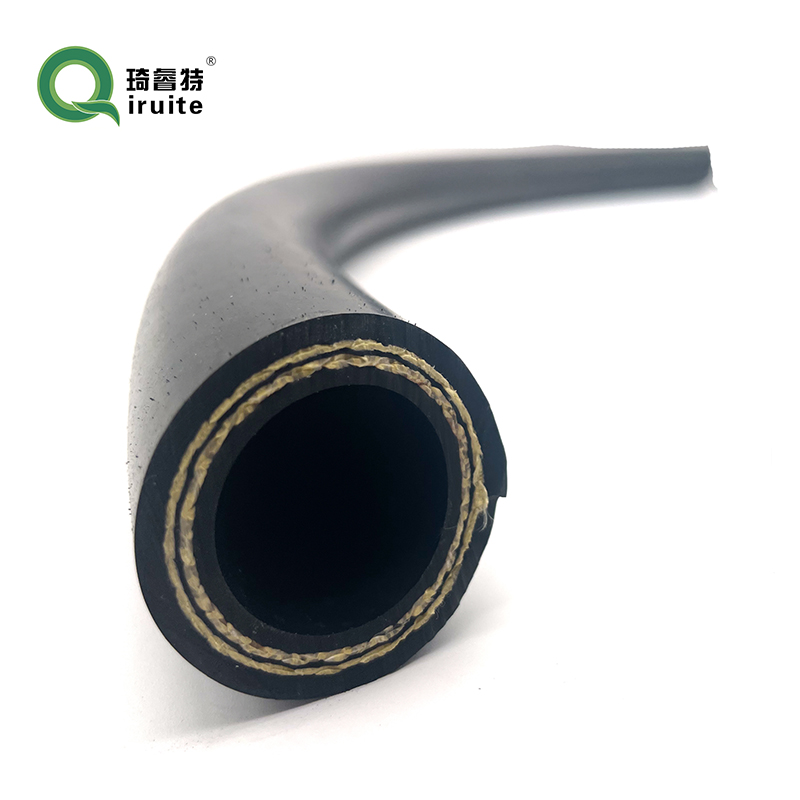rubber brake hose
Understanding Rubber Brake Hoses Importance, Functionality, and Maintenance
When it comes to vehicle safety, few components are as crucial as the braking system. Within this intricate system lies an essential element known as the rubber brake hose. This unassuming yet vital component plays a pivotal role in ensuring that vehicles can stop efficiently and safely. In this article, we delve into the significance, functionality, and maintenance of rubber brake hoses.
What is a Rubber Brake Hose?
A rubber brake hose is a flexible tube that connects the brake lines to the brake calipers. Its primary function is to transport brake fluid from the master cylinder to the brake components. The use of rubber for these hoses is prevalent due to its excellent elasticity, resistance to bursting under pressure, and ability to withstand various environmental conditions.
Typically, rubber brake hoses are made from synthetic rubber, which is reinforced with layers of fiber or metal to enhance strength and durability. These hoses are designed to operate under high pressure, often exceeding 1,500 psi, and must endure a wide range of temperatures and climatic conditions.
Importance of Rubber Brake Hoses
1. Safety The most critical reason for maintaining rubber brake hoses is safety. A failure in the hose can lead to a complete loss of braking power, resulting in severe accidents. A small crack or rupture can lead to a dangerous situation on the road. Regular inspections can prevent such occurrences and ensure that the braking system functions smoothly.
2. Performance The effectiveness of a vehicle’s braking system largely depends on the condition of the rubber brake hoses. Over time, rubber can wear down due to heat, moisture, and exposure to road chemicals, which can affect its performance. A well-maintained hose contributes to better braking response and vehicle control.
3. Cost-effectiveness Investing time in regular maintenance can save vehicle owners from costly repairs in the long run. By replacing old or damaged brake hoses before they fail, vehicle owners can avoid potentially expensive accidents caused by brake failure.
Functionality of Rubber Brake Hoses
rubber brake hose

The functionality of rubber brake hoses is intertwined with their design and material properties. When the brake pedal is pressed, hydraulic pressure is created in the brake fluid, which travels through the brake lines and hoses to the brake calipers. The rubber brake hoses must be flexible enough to withstand the repetitive stress of braking while carrying this high-pressure fluid.
Additionally, rubber hoses are designed to dampen vibrations and thermal expansion, which can be vital in maintaining the integrity of the braking system. Their flexibility allows for the movement of the vehicle’s suspension system without compromising the performance of the brakes, providing a seamless connection between the master cylinder and the brake components.
Maintenance and Inspection
Proper maintenance of rubber brake hoses is crucial for ensuring vehicle safety. Here are some best practices
1. Regular Inspections Vehicle owners should periodically inspect their brake hoses for any signs of wear and tear, such as swelling, cracks, or leaks. Paying attention to the condition of the hoses can prevent unexpected failures.
2. Replacement Schedule Like other components of the braking system, rubber brake hoses have a lifespan. It is generally recommended to replace them every four to six years, but this can vary based on the vehicle and driving conditions.
3. Professional Check-ups Regular professional inspections can identify potential issues that may not be visible during a casual glance. Mechanics can perform pressure tests and other checks to ensure the hoses are functioning optimally.
4. Avoiding Harsh Chemicals It's essential to avoid exposing rubber brake hoses to harsh chemicals and road salts, which can deteriorate the rubber. Maintaining clean hoses can prolong their lifespan.
Conclusion
In summary, rubber brake hoses are integral components of a vehicle's braking system that ensure safety and performance. Regular maintenance and timely replacement are critical for keeping these hoses in top condition, ultimately enhancing vehicle safety. By understanding their importance and taking proactive measures, vehicle owners can ensure their brakes remain reliable, providing peace of mind on the road. Remember, when it comes to brake safety, neglecting rubber brake hoses is not an option.
-
Ultimate Spiral Protection for Hoses & CablesNewsJun.26,2025
-
The Ultimate Quick-Connect Solutions for Every NeedNewsJun.26,2025
-
SAE J1401 Brake Hose: Reliable Choice for Safe BrakingNewsJun.26,2025
-
Reliable J2064 A/C Hoses for Real-World Cooling NeedsNewsJun.26,2025
-
Heavy-Duty Sewer Jetting Hoses Built to LastNewsJun.26,2025
-
Fix Power Steering Tube Leaks Fast – Durable & Affordable SolutionNewsJun.26,2025

